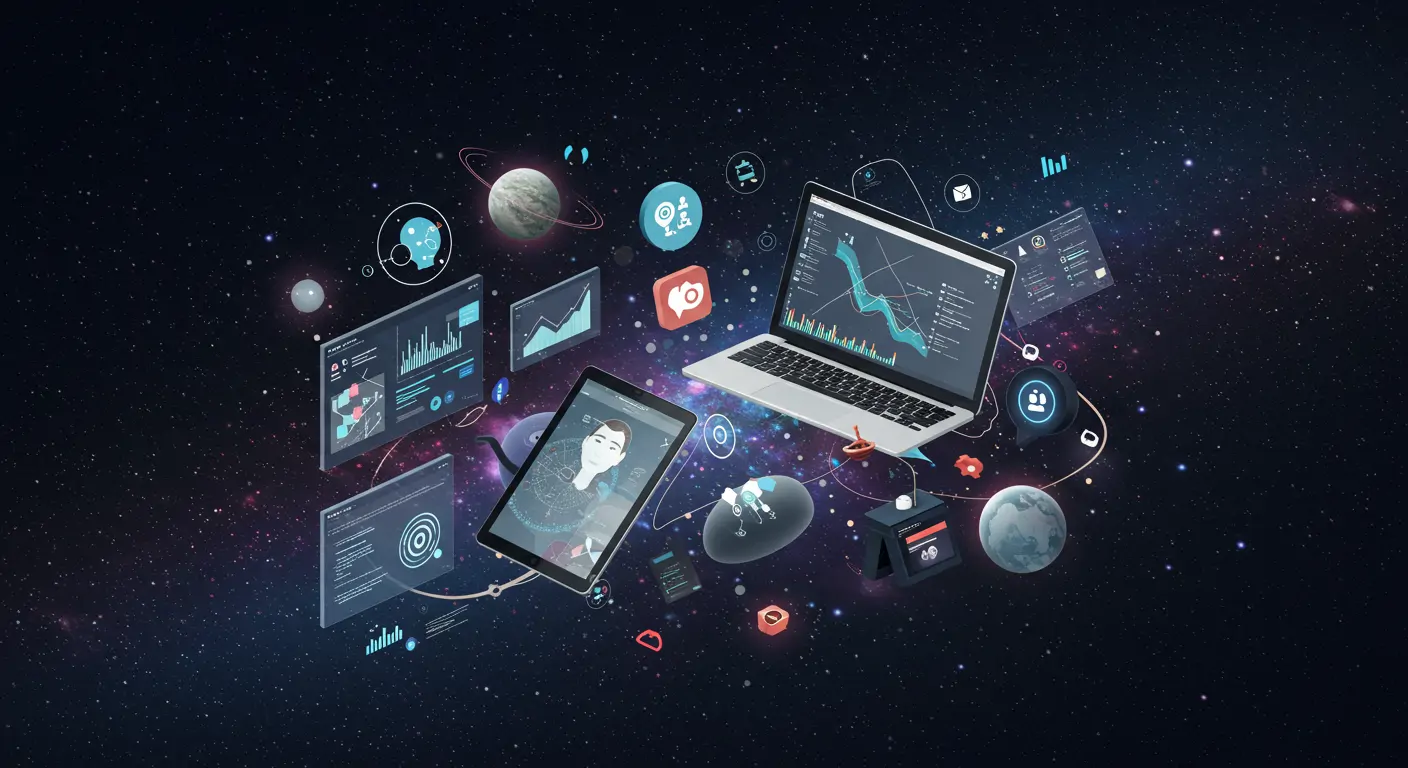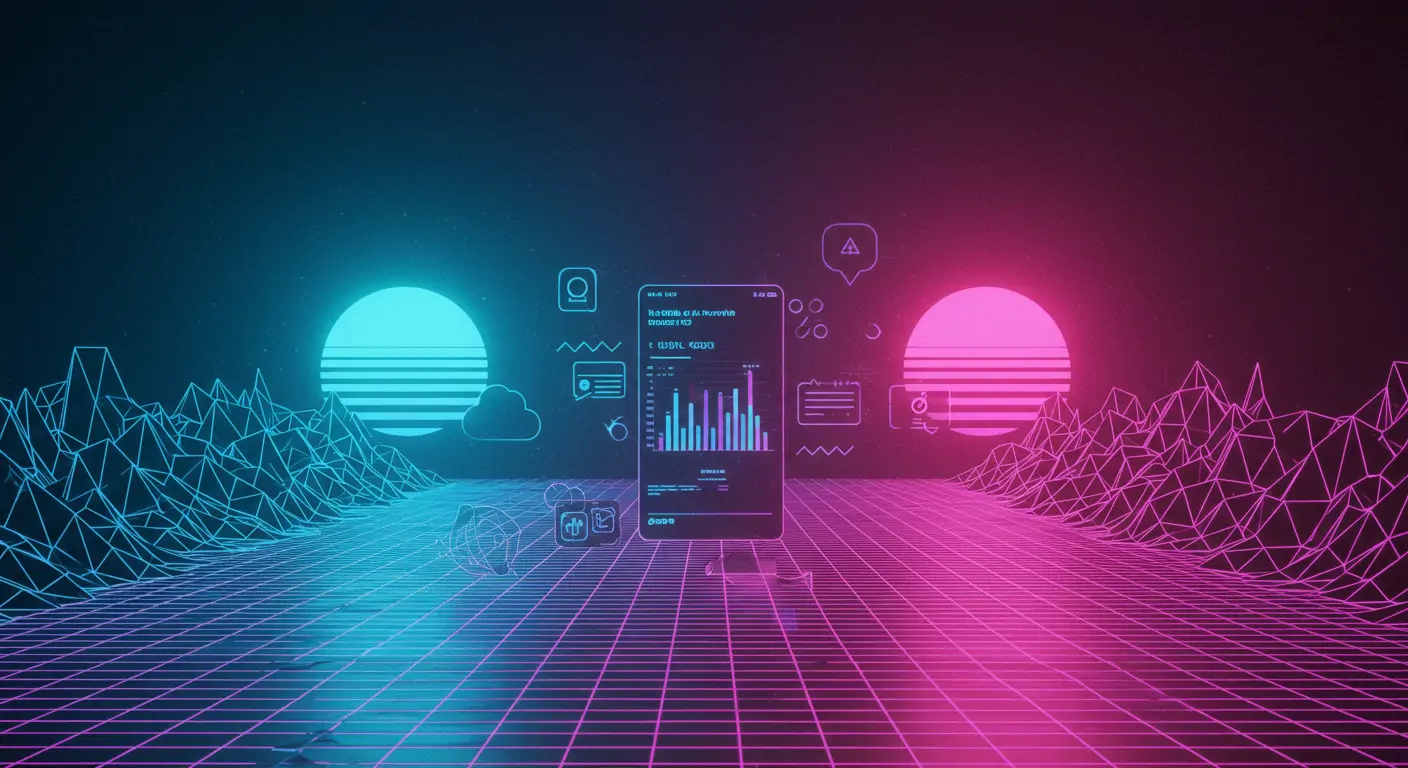Introduction: Why This Matters Now
In 2025, the app development landscape is set for a seismic shift as AI agents drive no-code solutions to the forefront. Recent research by Gartner indicates that the no-code market is expected to grow by 23% annually, reaching $13.8 billion by the end of 2025. This trend is not just a technological evolution but a strategic necessity for businesses seeking agility and reduced time-to-market.
The thesis here is simple: AI agents are democratizing app development, making it accessible to a broader audience beyond seasoned developers. This change impacts developers, businesses, and investors by reducing complexity, lowering costs, and accelerating innovation.
Estimated read time: 12 minutes
The Current State: What's Happening Right Now
As of mid-2024, several key developments have positioned AI-driven no-code platforms as viable tools for app development. Microsoft launched its Power Platform update in February 2024, integrating AI agents that offer predictive coding capabilities, significantly reducing development time. Meanwhile, Bubble.io reported a 45% increase in user adoption from Q2 2023 to Q2 2024, driven by small to medium enterprises (SMEs) seeking rapid deployment solutions.
The traditional approach to app development, reliant on extensive coding knowledge and lengthy development cycles, is losing favor due to its inefficiency in rapidly changing markets. A study by Forrester in 2024 highlighted that 68% of businesses adopting no-code platforms saw a 60% reduction in development costs.
Key Drivers: What's Fueling This Trend
Driver 1: Economic Pressure for Efficiency
With global economic uncertainties, businesses are under pressure to deliver more with less. AI agents in no-code platforms offer an efficient solution, with companies reporting up to 55% faster project completions (Forbes, 2024).
Driver 2: Technical Advancements in AI
The maturation of AI technologies, such as natural language processing and machine learning, enables platforms like Appian and OutSystems to offer more intuitive and powerful no-code environments, facilitating complex app creation with minimal manual coding.
Driver 3: Social Demand for Accessibility
Diversifying the tech workforce is a growing social movement. No-code platforms democratize technology, allowing non-technical users to participate in app development, thus bridging the digital skills gap.
Caption: Data visualization of no-code platform market growth
Real-World Impact & Case Studies
Case Study 1: Glide Apps
Glide Apps, a platform transforming spreadsheets into mobile apps, saw a 70% user base increase between 2024 and 2025. By integrating AI to automate data insights, Glide reduced app generation times by 40%, empowering non-coders to create functional apps rapidly.
Case Study 2: Zapier
Zapier, an automation service that connects apps, implemented AI-driven enhancements in March 2024. This allowed users to automate more complex workflows, increasing task completion rates by 35% and reducing manual effort significantly.
Industry Implications
For Developers
- Learn AI integration techniques to stay relevant
- Exploration of new career paths in AI-assisted development
For Businesses
- Consider strategic shifts towards rapid prototyping
- Gain competitive advantages through faster innovation cycles
For Investors
- Opportunity in investing in AI-driven no-code startups
- Assess risks related to rapid technological changes
Challenges & Criticisms
Despite its potential, the no-code approach faces skepticism, particularly concerning security and scalability. As AI agents handle more development tasks, there is a risk of over-reliance on these technologies, potentially leading to cookie-cutter solutions and reducing innovation diversity.
Moreover, there are concerns about data privacy and the ethical implications of AI decisions in app functionality, which require robust regulatory oversight.
Future Outlook: What's Next
In the short term, expect a surge in hybrid models combining low-code with no-code approaches to balance flexibility with simplicity. By 2026, as AI agents become more sophisticated, fully autonomous app development could become a reality, further minimizing human intervention.
Key milestones to watch include major updates in AI capabilities by leading platforms and emerging regulatory frameworks to address AI governance in app development.
Frequently Asked Questions
- What defines a no-code platform?
- How secure are AI-driven no-code solutions?
- What industries benefit most from no-code adoption?
- Are traditional developers becoming obsolete?
- How do AI agents improve no-code platforms?
Conclusion: Key Takeaways
- AI agents in no-code platforms are revolutionizing app development by democratizing access and reducing costs.
- Short-term growth is expected as businesses prioritize agile solutions.
- Challenges remain regarding security and the balance of human and AI input in creative processes.
- Readers should explore AI integration opportunities to stay ahead.
For more information on AI agents and no-code platforms, consider attending leading tech conferences or subscribing to industry reports.




